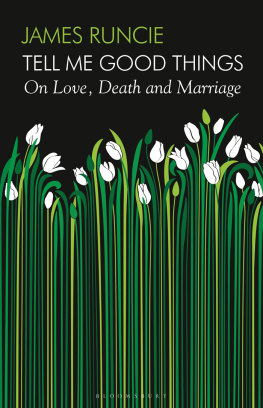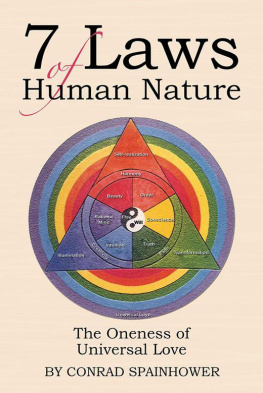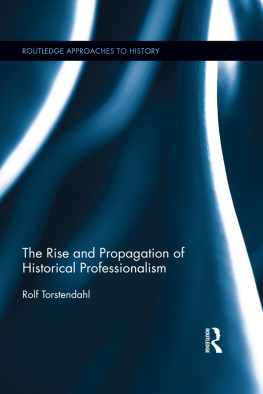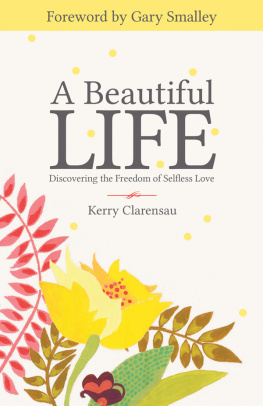Stanford University Press
Stanford, California
2017 by Paul A. Kottman. All rights reserved.
No part of this book may be reproduced or transmitted in any form or by any means, electronic or mechanical, including photocopying and recording, or in any information storage or retrieval system without the prior written permission of Stanford University Press.
Printed in the United States of America on acid-free, archival-quality paper
Library of Congress Cataloging-in-Publication Data
Names: Kottman, Paul A., 1970- author.
Title: Love as human freedom / Paul A. Kottman.
Other titles: Square one (Series)
Description: Stanford, California : Stanford University Press, 2017. | Series: Square one : first-order questions in the humanities | Includes bibliographical references and index.
Identifiers: LCCN 2016053302 (print) | LCCN 2016054559 (ebook) | ISBN 9780804776769 (cloth : alk. paper) | ISBN 9781503602274 (pbk. : alk. paper) | ISBN 9781503602328 (electronic)
Subjects: LCSH: Love in literature. | LovePhilosophy.
Classification: LCC PN56.L6 K68 2017 (print) | LCC PN56.L6 (ebook) | DDC 809/.933543dc23
LC record available at https://lccn.loc.gov/2016053302
Typeset by Bruce Lundquist in 10/14 Minion Pro.
LOVE AS HUMAN FREEDOM
Paul A. Kottman
STANFORD UNIVERSITY PRESS
STANFORD, CALIFORNIA
SQUARE ONE
First Order Questions in the Humanities
Series Editor: PAUL A. KOTTMAN
For Sakura
Contents
Acknowledgments
This project owes a great deal to several institutions: The New School, for a sabbatical and other forms of research assistance; the Internationales Kolleg Morphomata at the Universitt zu Kln, for a generous fellowship which made possible a year of reading and writing free from teaching and administrative duties; and the Center for Philosophy and Literature at the University of Tokyo and the Philosophy Department of the Universit degli studi di Verona, for visiting professorships that augmented the time I could devote to research. I am also grateful to the audiences who heard sections of this book in lecture form over recent years. I cannot list them all here, but I especially remember discussions at the Committee on Social Thought at the University of Chicago, the Universit degli studi di Salerno, the Literaturwissenschaftliches Kolloquium at the Ludwig-Maximilians-Universitt Mnchen, and the Department of Comparative Literature at the City University of New York, Graduate Center.
I am also indebted to many individuals, a few of whom read and commented on drafts of the entire manuscript. I have benefited enormously from correspondence and conversations with Robert Pippin, and from his comments on a late draft; his encouragement and support are deeply appreciated. Jay Bernstein was the first to hear me talk about this project, and I am grateful for his enthusiastic support and helpful suggestions throughout. Thomas Pavel offered a number of helpful comments on a late draft. Richard Eldridge also read a late draft, and provided some very useful comments and questions. Adriana Cavarero read the manuscript, as well, and made good suggestions. I also remember stimulating conversations and exchanges about the issues raised in this book with Cinzia Arruzza, Christian Benne, Joshua Billings, Omri Boehm, Chiara Bottici, Judith Butler, Jean Comaroff, Benoit Challand, Andrew Cutrofello, Ewan Fernie, Simona Forti, Bernard Flynn, Oz Frankel, Markus Gabriel, Kristin Gjesdal, Lydia Goehr, Stephen Greenblatt, Espen Hammer, Agnes Heller, Gregg Horowitz, Daniella Jancs, Anna Katsman, Shoichiro Kawai, Karl Kottman, Jonathan Lear, Leonardo Lisi, Julia Reinhard Lupton, Inessa Medzhibovskaya, Dmitri Nikulin, Adi Ophir, Dominic Pettman, Julia Peters, Terry Pinkard, Ross Poole, James Porter, Meghan Robison (I am grateful to Meghan for invaluable research assistance, as well), Adam Rosen-Carole, Rocco Rubini, David Schalkwyk, Alain Schnapp, Joshua Scodel, Michael Squire, Ann Stoler, Yasunari Takada, Davide Tarizzo, Tommaso Tuppini, Rosanna Warren, David Wellbery, Michael Weinman and Alenka Zupani. I should also like to thank my students, as well as Emily-Jane Cohen at Stanford University Press.
Special thanks, finally, to my daughters, Sophia Kottman and Helena Kottman, for their cheerful help throughout; and to Sakura Ozaki, for all that her encouragement and understanding has made actual, and now possible.
Part I
Prologue
Love must be a lover of wisdom [philosophos, philosopher], and, as such, in between being wise and being without understanding.
Plato, Symposium 204b
In recent years, with astonishing rapidity, widespread social opposition to same-sex marriage has evaporated in many parts of the world. Reliable and effective birth control has become increasingly available to individuals around the globe. Millions of women, in the past century, have gained the ability to safely and legally terminate a pregnancy at will. New reproductive technologies, along with new kinship formations, make the propagation of life and the raising of children seem less and less the result of sexual reproduction. At the same time, in many places, we are living through one of the most profound social transformations in human history: the erosion of a gender-based division of labor. The tidal waves of political and philosophical feminism, and the critiques to which entrenched institutions of sexual domination are subjected, are being felt throughout society. Behind this lies the expanded social authority of lovemaking and love-based commitments, in our laws governing everything from marriage and domestic economic life, to the adoption of children, to our schools and medical practices. Virtually no social, civic or political institution is being left untouched by these vast changes. In the face of ongoing violence, naked prejudice, social crisis, regressive politics and institutionalized oppression around the worldmuch of which arises in response to the developments just mentionedwe may hesitate to trumpet this list of achievements too loudly. But these transformations are nevertheless real and vast.
At same time, the sheer pace of the change often outstrips our explanations for it. Indeed, what would even count as an explanation for such immense transformations? This book is an attempt to answer this question, and to get into focus the kind of account we need to give to better explain these realities.
While love can seem a perennial topic for poets, philosophers, or theologians, the large social changes just mentioned belie any ahistorical visions of love. Indeed, they compel us to think anew about love as a historical practice, comprised of concrete ways of treating one another that change over time.
How, then, to account for the historical transformations just mentioned? How to reckon with their vast implications? And how might these changes themselves help us to explain anything else? These are some of the questions to which the following pages will try to respond.
Consider a well-known reality, no less astonishing for being common knowledge: for generations upon generations, in many societies around the world, even today, men possessed of the
Given the manifestly equal intelligence and capabilities of women, how could there have been so many centuries upon centuries of sexual domination? And what ends were being served by such gender-based divisionsbetween men and women, men and boys, matriarchs and girls, and other similarly enforced social-gendered roles? The answers to such questions have seemed obvious to many, as self-evident as the privileges of power in any other form of social domination. But, I think, the available explanations are still insufficient and impoverished. In their place, then, I will outline a historical dialectic that claimsand here I must be careful, lest the claim sound exculpatorythat such institutions of domination were inevitable, however wrong.
Next page








